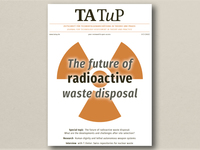 New TATuP issue “The future of radioactive waste disposal” New TATuP issue “The future of radioactive waste disposal”The future can be far away and present at the same time regarding the site selection for a final repository for radioactive waste. The challenges for research and policy are the focus of the new TATuP issue. more |
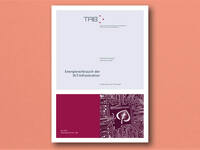 Report: Energy for digital infrastructures Report: Energy for digital infrastructuresDigitization helps to make processes more resource- and energy-efficient. At the same time, it consumes large amounts of energy itself. TAB analyzes the state of knowledge on the energy consumption of ICT infrastructures and identifies potential savings. more |
 TA for Austrian parliament TA for Austrian parliamentIn addition to the German Bundestag and the European Parliament, ITAS researchers will also provide policy advice to members of the Austrian Parliament. They partner with the Institute of Technology Assessment in Vienna, which is in charge of the work. more |
 Venia Legendi for TA researcher Venia Legendi for TA researcherA milestone for establishing technology assessment in teaching: Dirk Scheer is the first scientist at the Karlsruhe Institute of Technology to be authorized to hold lectures on TA after successfully completing his habilitation. more |
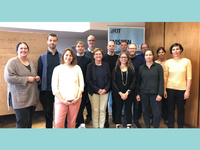 Designing digital worlds of work Designing digital worlds of workITAS and the Federal Institute for Occupational Safety and Health (BAuA) want to meet the increasing importance of AI in the world of work with human-centered approaches. A joint symposium was held to prepare further collaborations. more |
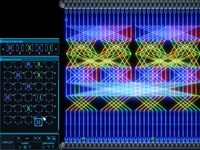 "Effekte”: Exhibition and panel discussion on quantum technology "Effekte”: Exhibition and panel discussion on quantum technologyQuantum computers promise to break the boundaries of digital computing. ITAS will shed light on what the technology means for us and how it can be experienced in play with a panel discussion (13 Dec. 2022) and exhibition starting (14-16 Dec. 2022). |
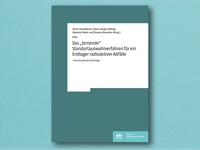 Repository search: Publication on a “learning process” Repository search: Publication on a “learning process”The selection of a site for a nuclear waste repository is to take place in a “learning” process. A new anthology sheds light on what exactly this means from a scientific perspective and how to implement this requirement in practice. more |
 Final disposal: Questions for centuries Final disposal: Questions for centuriesHow can we prepare decisions around a nuclear waste repository today that may not become relevant for another 500 years? This question is addressed in a new volume published by ITAS researchers. more |
 Technology assessment in times of multiple crises Technology assessment in times of multiple crisesOn 17 October 2022, members of parliament and researchers met for the international EPTA conference in Berlin. There, they discussed the political and societal handling of disruptions and the role of TA for parliaments. more |
 AI in administration AI in administrationA new TAB working report deals with perspectives for a successful digitalization of administration. It focuses on international examples of the use of AI and distributed ledger technologies (DLT). more |
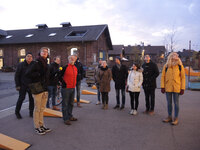 Taking part in the energy transition Taking part in the energy transitionHow can as many people as possible participate in the transformation of the energy system? Researchers at ITAS have spent four years developing participation formats – digitally and on site in Karlsruhe. Now the project has been completed. more |
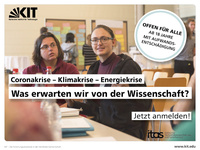 Citizens' Dialogue: "Corona crisis, climate crisis, energy crisis" Citizens' Dialogue: "Corona crisis, climate crisis, energy crisis"What do we expect from science when it comes to managing crises as a society? ITAS researchers would like to discuss these and other questions with citizens on 15 November 2022. The venue is the TRIANGEL Open Space in Karlsruhe. more |
 Organizations as sustainability accelerators Organizations as sustainability acceleratorsThe urgently needed transformation toward greater sustainability is not getting off the ground. The required impetus could come from companies, authorities, associations, and other organizations, according to a recent publication with ITAS involvement. more |
 Reflective Equilibrium as a Form of Life Reflective Equilibrium as a Form of LifeWith “reflective equilibrium,” John Rawls gave a name to one of the most influential methods in philosophy exactly 51 years ago. In view of competing interpretations, Michael Schmidt asks in his dissertation how to properly understand it. more |
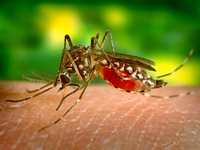 Climate change and sandfly-borne diseases Climate change and sandfly-borne diseasesHow can we better prepare for the impact of climate and environmental changes on human and animal health? Together with partners worldwide, ITAS participates in developing an early warning system for infection risks associated with climatic changes. more |
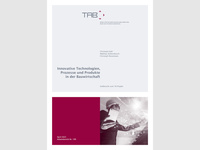 Innovations for a more efficient construction industry Innovations for a more efficient construction industryA new TAB report analyses relevant trends with regard to technology, product and process innovations in the construction industry in Germany and identifies fields of action for fundamental structural change. The corresponding Policy Brief is now available in English. more |
 EPTA Conference 2022 EPTA Conference 2022What contribution to the political and social handling of disruptions can technology assessment make? This question is the focus of the conference of the European Parliamentary TA Network (EPTA), which will take place in Berlin on 17 October 2022. more |
 Regulation of autonomous weapons systems Regulation of autonomous weapons systemsFor years, the UN has debated ways to restrict autonomous weapons systems – so far without success. According to a recently published article, leading military powers have taken advantage of the unclear definition of artificial intelligence. more |
 Bioeconomy: microalgae in agriculture Bioeconomy: microalgae in agricultureMicroalgae produce valuable pigments, omega-3 fatty acids or proteins. Researchers at ITAS have now investigated the potential of algae cultivation in Germany together with partners and in close exchange with agriculture. more |
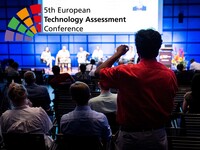 Report: 5th European TA Conference Report: 5th European TA ConferenceThe European TA Conference took place from 25 to 27 July 2022 in Karlsruhe. Researchers from all over the world gathered at ZKM and exchanged ideas regarding "Digital Future(s): TA in and for a Changing World". Now we have summed up the highlights of the event in a conference report. more |
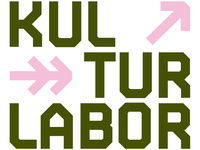 Start of Kulturlabor Freiburg Start of Kulturlabor FreiburgTo support sustainability transformations in the arts and culture sector, the “real-world lab” format has been transferred to the cultural sector in a cooperation between Freiburg’s Department of Cultural Affairs and the Karlsruhe Transformation Center. more |
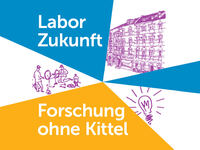 Podcast – two years of “Future Lab” Podcast – two years of “Future Lab”With over 20 episodes, the podcast “Labor Zukunft – Forschung ohne Kittel” provides insights into the work of the District Future real-world lab and local sustainability projects. The format explores transformation processes on site. more |
 KIT Presidential Committee appreciates “District Future” KIT Presidential Committee appreciates “District Future”For its extraordinary achievements in the field of real-world lab work, the KIT Presidential Committee now honored the team of “District Future”. This was preceded in October 2021 by the Joachim Reutter Prize for Social Innovation. more |
 Trees as a shield for cities in climate change Trees as a shield for cities in climate changeClimate change has arrived in German cities. Heat and drought periods are becoming longer and hotter. To mitigate the consequences, researchers led by forest expert Somidh Saha recommend planting more trees to take advantage of their cooling potential. more |
 New textbook on technology assessment New textbook on technology assessment20 years ago, Armin Grunwald authored the first German-language introduction to technology assessment. Now the professor of philosophy of technology and head of ITAS has published a completely updated and expanded new edition. more |
 New TATuP issue “Energy sufficiency” New TATuP issue “Energy sufficiency”Can modern societies get by with less energy than before? The current TATuP issue looks at the opportunities offered by the sufficiency concept and scenarios for lower energy consumption. more |
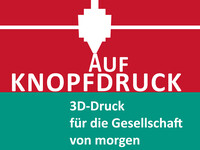 Podcast on 3D printing Podcast on 3D printing3D printing is seen as a technology with a huge potential for a wide range of applications. What the innovative manufacturing technology exactly does and how it could be used by society is the topic of a new, five-part podcast series. more |
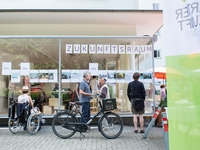 A code of ethics for real-world labs A code of ethics for real-world labsBecause of their transformative nature, real-world labs raise particular ethical questions for those involved. A new project aims to address these issues and identify approaches to dealing with them. more |
 Call for “Researchers at risk” Call for “Researchers at risk”Researchers who have fled or are endangered by war and conflict can apply for a six months stay at ITAS until 31 August 2022. The call is aimed at people working on the philosophy of engineering, technology assessment or science. more (PDF) |
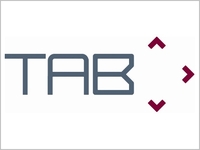 New projects for 2022/2023 New projects for 2022/2023Following the adoption of the new TAB work programme, the recent meeting of the Committee on Education, Research and Technology Assessment focused on the topic of “Genome Editing in Humans”. more |
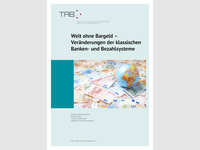 World without cash? World without cash?The TAB report on changes in traditional banking and payment systems and changes in its power structure provides an overview of developments in the payment traffic and changes in its power structure. more |
 Project completion: Research on innovative prosthetics Project completion: Research on innovative prostheticsIntelligent prostheses are an innovation that can bring back quality of life and participation to people with amputations. An ITAS team has dealt with the social, legal, and ethical challenges arising in this context. more |
 Theme evening “WasserStoff der Träume“ Theme evening “WasserStoff der Träume“Will the lightest element in the periodic table become the heavyweight of the energy transition? In the technik.kontrovers series on Tuesday, 28 June 2022, ITAS researchers will explore the question of whether the hopes associated with hydrogen are justified. more |
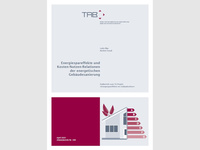 How to save energy, emissions and money in the building sector How to save energy, emissions and money in the building sectorThe TAB report on energy saving effects in the building sector shows what property owners can do to save resources and money and how the state can help them. Policy brief TAB-Fokus is available in English. more |
 How do citizens assess the corona pandemic and its consequences? How do citizens assess the corona pandemic and its consequences?The results of a population-representative survey on this question are the focus of the fifth issue of the TAB-Sensor. more |
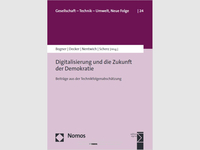 New publication on democracy and digitalization New publication on democracy and digitalizationPolarization, market-dominating platforms, fake news – democracy is under pressure and must face the challenges of the digital world. In a new anthology, researchers from TA and other disciplines search for possible solutions. more |
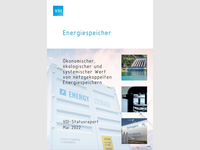 Status report on energy storage systems published Status report on energy storage systems publishedAt ITAS, Marcel Weil and Manuel Baumann investigate the environmental balance of storage technologies. For the VDI – The Association of German Engineers, the scientists have now taken part in a survey on the “value” of storage systems in the energy grid. more |
 Award as “place of learning” for sustainability Award as “place of learning” for sustainabilityKIT has received the “National Prize – Education for Sustainable Development” from BMBF and UNESCO. Decisive factors were many offers with ITAS participation, such as the “Karlsruhe School of Sustainability” or the mobile participation laboratory “MobiLab.” more |
 Health tracking: Potentials and side effects Health tracking: Potentials and side effectsFitness wristbands, trackers, or health apps are part of many people’s everyday lives. The individual and social effects of using these devices were discussed by users and experts at the invitation of ITAS. more |
 Participatory TA procedures for the Bundestag Participatory TA procedures for the BundestagNew methods report presents innovative participation procedures and discusses their potential benefits for parliamentary Technology Assessment. more |
 European TA Conference: Keynotes and program European TA Conference: Keynotes and programWith Payal Arora, Jeanette Hofmann and Doris Allhutter, three outstanding researchers will speak at the 5th European TA Conference (25-27 July 2022, Karlsruhe). Information on their keynotes and the conference program is now available online. more |
 “TA in Dialogue” on World Malaria Day “TA in Dialogue” on World Malaria DayOn the occasion of World Malaria Day, technological approaches to combating malaria were the focus of a moderated panel discussion on 25 April 2022 as the start of the new event series “TA in dialogue” in the German Bundestag. more |
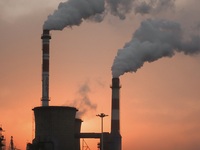 CO2 tax against climate change and poverty CO2 tax against climate change and povertyWhat would be the impact of taxing greenhouse gas emissions at the global level if coupled with a dividend system? A new study sees great potential in combining the two approaches. more |
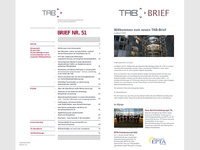 Welcome to the new TAB-Brief – the first newsletter in English Welcome to the new TAB-Brief – the first newsletter in EnglishAfter 30 years in printed form TAB offers the TAB-Brief with information on TA at the German Bundestag as a compact digital newsletter in Englisch for subscription. more |
 Theme evening “Artificial intelligence between fact and fiction” Theme evening “Artificial intelligence between fact and fiction”What can AI do and how is it being used today? Which future scenarios are we aiming for and how realistic are they? ITAS researchers and science fiction author Theresa Hannig will discuss this at technik.kontrovers on Wednesday, 4 May 2022. more |
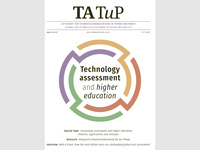 New TATuP issue “Technology assessment and higher education” New TATuP issue “Technology assessment and higher education”As a “pioneer of inter- and transdisciplinarity,” technology assessment plays an increasingly important role in academic teaching. What this development means for technology assessment (TA) is explored in the new issue of TATuP. more |
 Shaping tomorrow's digital society Shaping tomorrow's digital societyAs part of a dialogue event between scientists from the Rathenau Institute and the TAB with members of the German Bundestag, the EPTA presidency 2022 was handed over from the Netherlands to Germany. more |
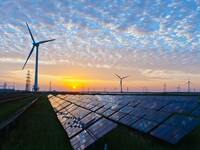 Energy storage: Aluminum as a beacon of hope Energy storage: Aluminum as a beacon of hopeThe efficient use and recycling of storage materials is essential for a sustainable energy supply. To meet the increasing demand for energy storage, ITAS investigates the use of aluminum in the “ALU-STORE” project. more |
 Mobility and urban development: Less parking areas, more park areas? Mobility and urban development: Less parking areas, more park areas?Using the example of a district in Karlsruhe, researchers have investigated to which extent new, digitally supported mobility offers could change mobility behavior, reallocate public space, and improve quality of life. more |
 Europe: Roadmap for sustainable batteries Europe: Roadmap for sustainable batteriesWhat should the European battery landscape look like in a decade? Leading experts in Europe have drawn up a roadmap for transforming research in the field of emerging energy storage technologies. Particular focus: sustainability and circular economy. more |
 New publication: Introduction to sustainability New publication: Introduction to sustainabilityWhat does a society that takes responsibility for present and future generations look like? Armin Grunwald and Jürgen Kopfmüller have updated their book publication on the guiding principle of sustainable development with current topics and debates. more |
 On the way to a digitally integrated agriculture? On the way to a digitally integrated agriculture?In two newly published reports TAB sheds light on development trends in digital agricultural technologies and analyses the opportunities and risks of a systemically integrated agriculture. The corresponding Policy Briefs are now available in English. more |
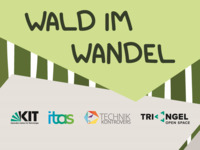 Theme evening “Forests in Transition“ Theme evening “Forests in Transition“Heat, drought and pollutants threaten trees and forests. Scientists at ITAS are therefore researching how forests can become more resilient. They will provide insights into their work at "technik.kontrovers" on 24 February 2022. more |
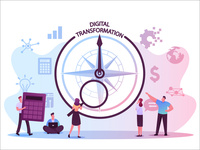 Tomorrow’s working environments: Visions for digital transformation Tomorrow’s working environments: Visions for digital transformationHow can employees use digital innovations to make companies more democratic? And what can they learn from cooperatives in this process? Henceforth, ITAS will address these questions on behalf of the Hans Böckler Foundation. more |
 European TA Conference in Karlsruhe (Update) European TA Conference in Karlsruhe (Update)The Institute for Technology Assessment and Systems Analysis (ITAS) is organizing the 5th European Technology Assessment Conference 2022. We are happy to announce that the registration reopened. Due to the pandemic, the conference has been postponed and will take place from 25 to 27 July 2022 in Karlsruhe. more |
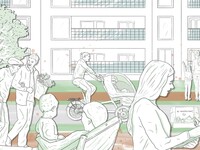 Karlsruhe Transformation Center is founded Karlsruhe Transformation Center is foundedOur society is facing profound transformations of ways of living and economics towards a future viability and sustainability. The Karlsruhe Transformation Center for Sustainability and Cultural Change (KAT) supports these processes of change. more |
 Sustainable urban forestry in Korea and Germany Sustainable urban forestry in Korea and GermanyHealthy urban forests play a key role to counter the impacts of climate change in cities. A new Ph.D. project at ITAS develops strategies for the participation of citizens in transforming those forests into more resilient social-ecological systems. more |
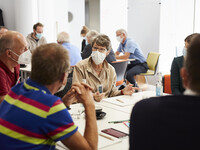 Citizens’ dialogues: Anchoring society in everyday scientific life Citizens’ dialogues: Anchoring society in everyday scientific lifeWhat expectations and wishes do citizens have of the work of researchers? In order to involve society more closely in the research work of the Karlsruhe Institute of Technology, ITAS will design annual dialogue events on current scientific topics. more |
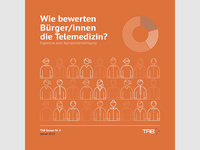 How do citizens evaluate telemedicine? How do citizens evaluate telemedicine?The fourth issue of the TAB-Sensor is dedicated to the topic of telemedicine and focuses on population-representative assessments of the use and potential benefits of telemedicine services. more |
 Conference on Real-world Labs in Transformation Conference on Real-world Labs in TransformationFor almost ten years, Real-world Labs have been supporting the transformation to more sustainability on site. Where their work stands today, asks the ITAS-based KAT at a conference on 2 and 3 June 2022 in Karlsruhe. Submission of contributions is open now. more |
 Energy transition worldwide: Publication on local projects Energy transition worldwide: Publication on local projectsResearchers from Karlsruhe and Arizona are helping marginalized communities around the world to use clean energy sources and increase their resilience to climate change. A collection of local stories drives the exchange. more |
 Decarbonization: Study on EU hydrogen strategy Decarbonization: Study on EU hydrogen strategyOne of the most complex tasks of the energy transition is the use of hydrogen in industrial processes. Together with Fraunhofer ISI, ITAS researchers have now analyzed the implementation of the European hydrogen strategy for the European Parliament. more |

